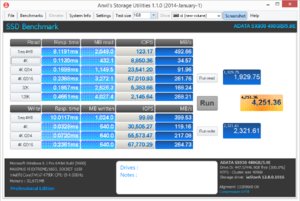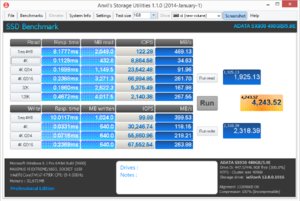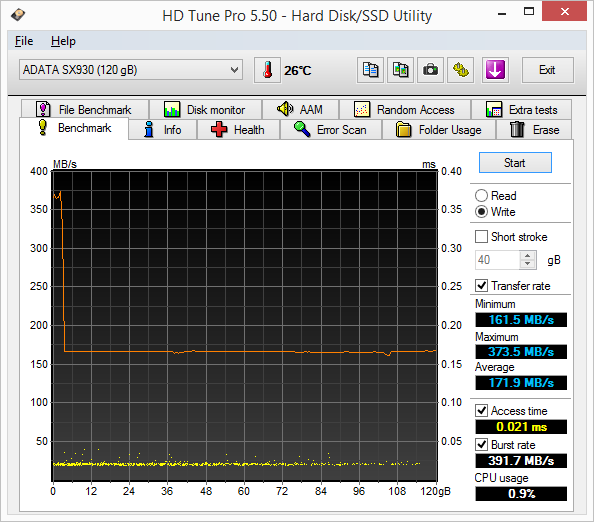Adata XPG SX930 SSD Review
Adata hits back with a new flagship SSD that incorporates high-endurance eMLC flash and a familiar JMicron controller.
Why you can trust Tom's Hardware
Data Type Comparison and SLC Cache


We used Anvil's Storage Utilities 1.10 to look for differences in performance between data types. The XPG SX930s do not lose read or write performance when switching between compressible and incompressible information.
In this test, we can see the Write Booster technology working with sequential data. We're using the 120GB model because it shows the largest performance difference between the pSLC and MLC modes. In this particular capacity, you get 4GB of pSLC, which doubles to 8GB on the 240GB model. The 480GB version doubles pSLC again to 16GB. Naturally, the larger the cache, the longer you can write data to the drive before performance drops to the lower level.
The 128GB-class SSDs use eight 128Gb (16GB) dies, and are usually equipped with two dies per package. The leap in price between a 128GB- and 256GB-class drive is not linear, and the greater capacity is almost always a better value due to other material costs. This is why we rarely publish performance data on 128GB SSDs.
Get Tom's Hardware's best news and in-depth reviews, straight to your inbox.

Chris Ramseyer was a senior contributing editor for Tom's Hardware. He tested and reviewed consumer storage.
